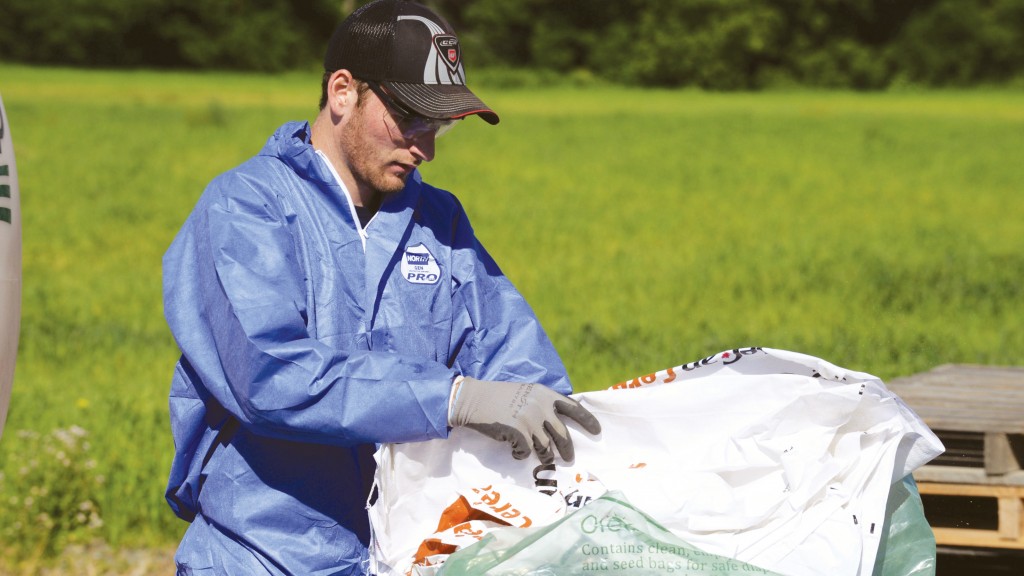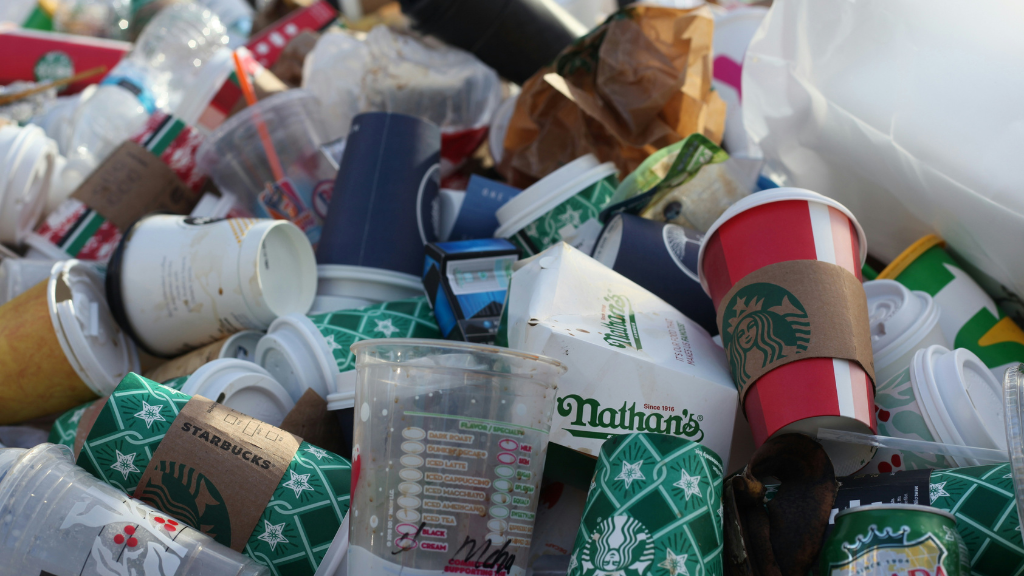Cleanfarms has ag-plastic waste in the bag
Non-profit environmental stewardship is helping Canadian farmers keep their operations clean and sustainable by managing agriculture industry plastic waste

Cleanfarms is unique on the Canadian recycling landscape. It is the only large-scale operation that is recovering plastic waste for recycling in the agricultural sector. As a non-profit industry stewardship organization, it operates in a similar fashion as those set up for electronics, paint and printed paper and packaging. Industry members, which are producers of products for the agricultural sector, finance the cost of recovery of their empty containers and other farm-based products for recycling and secure disposal at end of life.
A long road travelled
The small container collection program for Canada's agriculture industry is 30 years old in 2019. It was originally started by Crop Life, an organization that launched it as a voluntary stewardship program to help the pesticide/fertilizer industry take responsibility for its containers at their end of life. Crop life turned operation of the program over to Cleanfarms in 2010.
In the last few years, Cleanfarms has expanded its programs beyond various types of agriculture industry packaging to recover, among other things, empty grain bags. In Manitoba, silage wrap (the plastic tubes and plastic wrap used around hay bales that dot the agricultural landscape) is also being collected and recycled.
In some prairie locations, plastic grain bags can be seen lined up by the dozens, providing farmers with temporary storage for harvested cereal grains. Plastic grain bags also represent hundreds of miles of plastic, all of it viable material for recycling into new products.
"That's what we see when we drive the rural roads of the prairie provinces where grain bags and silage wrap are most prevalent - potential. We see the tremendous opportunity to recover that plastic and recycle it into new products," says Cleanfarms general manager Barry Friesen.
"Even though Cleanfarms has been on the Canadian recycling scene for 10 years, and we have highly successful recovery programs in full operation, it's time to start developing programs to capture secondary resource material like grain bags."
Friesen says when it comes to doing the right thing, Canadian farmers are like all other Canadians; they want recycling programs and secure disposal programs that responsibly manage the waste they generate. In the farm community, without recovery programs, the only options for disposal are burning, burying or disposal in landfill. However, many rural landfills no longer accept these materials.
So, for Cleanfarms the mission is clear, Friesen says. It's to design and implement stewardship programs that recover farm-based ag-plastics, manage ag-waste in an environmentally proper way at its end-of-life, and give farmers the best possible access to collection options so they can operate sustainable food production businesses.
Cleanfarms' flagship small container recycling actually got its start 30 years ago, when the crop protection industry in Canada took the initial steps to create a voluntary stewardship program in Alberta communities to collect empty agricultural plastic jugs for recycling. The idea took root. Now offered across Canada, it has brought in a total of approximately 126 million plastic jugs since the program started, all of which are recycled into new products instead of being disposed of in landfill.
"We're excited that we've been able to increase the recovery of empty containers, thanks to Canadian farmers and more than 1,000 ag-retail and municipal collection sites across the country. In 2018, we recovered nearly 5.8 million containers alone, a 14 percent increase by volume over 2017," Friesen says.
This nearly six million containers equates to about 66 percent of the smaller plastic containers that are placed on the market each year.
"Our success in 2018 set us up to go after 100 percent recovery to celebrate the 30th anniversary for plastic container recycling in 2019," Friesen continues. "We're asking farmers who use these products to follow best practices and recycle every one of the empty containers when they're finished with them. It's a big ask but we know Canadian farmers are keen stewards of their land and are committed to environmental responsibility when it comes to how this packaging is managed."
As the small container program grew from province to province, it cleared the path for the other Cleanfarms programs. Today, the roster of recyclable ag-plastics includes:
• Empty, small pesticide and fertilizer jugs/containers (23L and under) for recycling.
• Empty, large, non-deposit, bulk pesticide and fertilizer containers (23L and over) for recycling.
• Unwanted and obsolete pesticides and animal health products for secure disposal. (This program is operated in cooperation with the Canadian Animal Health Institute.)
• Seed and pesticide bags for proper disposal. (Currently operating in eastern Canada only, with pilot programs in the prairies.)• Grain bags for recycling in Saskatchewan.
• Grain bags and twine recycling pilot program in Alberta.
• Grain bags, silage/bale wrap and twine recycling pilots in Manitoba.
Grain bag gains
Grain bag collection in Saskatchewan, in particular, is shaping up to be a significant success story. Halfway through 2019, and with one of the busiest periods of grain bag recycling ahead, in the Fall, Saskatchewan farmers have already recycled 25 percent more plastic grain bags in 2019 than they did in all of 2018. Overall, they've turned in almost 1,580 tonnes of grain bags for recycling, compared to 1,265 tonnes in 2018.
"We have Saskatchewan farmers to thank for that," Friesen says. "We are very grateful they are getting on board so enthusiastically."
The recycling program for grain bags in Saskatchewan was established in July 2016 under The Agricultural Packaging Product Waste Stewardship Regulation, the first regulation of its kind in Canada.
Cleanfarms operates the extended producer responsibility (EPR) grain bag collection and recycling program on behalf of the obligated agricultural industry. In Alberta, grain bags are also the primary target for a new recycling pilot there. Under a contract with the Alberta Plastic Recycling Group, Cleanfarms is setting up 20 locations around the province that will collect grain bags, as well as twine, for recycling.
A tough job worth doing
While the shuttering of overseas markets for mixed plastics from Canadian residential recycling programs have challenged printed paper and packaging recycling operations, Cleanfarms has been able to keep collecting and moving ag-plastic materials recovered for recycling. Plastic containers are baled and shipped to end-markets in the U.S., while grain bags go to end-markets both in the prairies and south of the border.
"Just as curbside recyclers stress the need to avoid contaminating recyclable materials with packaging and products that are not accepted in their program, Cleanfarms also underscores the need for plastic containers to be empty and grain bags and silage wrap free of dirt, excessive rain water and old grain," Friesen says. "That's what keeps our end-markets happy."
Plastic from containers is recycled into farm drainage tiles while plastic from grain bags goes to make new plastic bags.
For unrecyclabes, including unwanted and obsolete pesticides and animal health products, these are disposed of through high temperature incineration at a facility in Swan Lake, Alberta, while seed and pesticide bags are disposed of at waste-to-energy facilities.
"At Cleanfarms, we use the engine of our successful operations to move us along the track toward our goal of continuous improvement," says Friesen. "That includes forging partnerships with the ag industry, ag-retailers and farmers to expand existing and develop new programs that enable farmers to do their job of producing food more effectively, while keeping their operations and communities clean and sustainable.
"We believe it's a job worth doing and we're committed to it."
Barbara McConnell, APR, is president of McConnell Weaver Strategic Communications.
This article was originally published in the October 2019 edition of Recycling Product News, Volume 27, Number 7.



